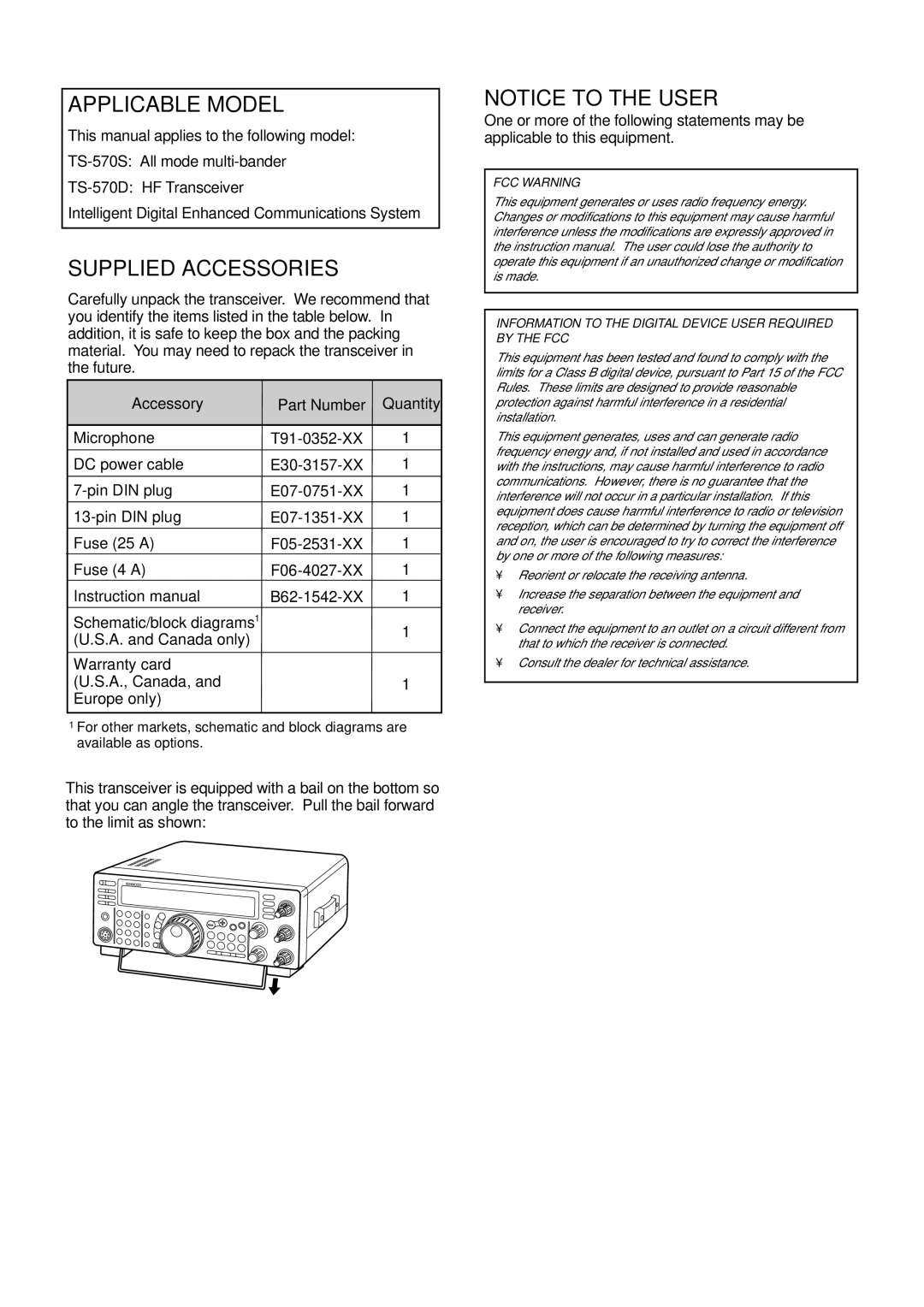
APPLICABLE MODEL
This manual applies to the following model:
Intelligent Digital Enhanced Communications System
SUPPLIED ACCESSORIES
Carefully unpack the transceiver. We recommend that you identify the items listed in the table below. In addition, it is safe to keep the box and the packing material. You may need to repack the transceiver in the future.
Accessory | Part Number | Quantity | |
|
|
| |
Microphone | 1 | ||
|
|
| |
DC power cable | 1 | ||
|
|
| |
1 | |||
1 | |||
|
|
| |
Fuse (25 A) | 1 | ||
Fuse (4 A) | 1 | ||
Instruction manual | 1 | ||
|
|
| |
Schematic/block diagrams1 | — | 1 | |
(U.S.A. and Canada only) | |||
|
| ||
|
|
| |
Warranty card |
|
| |
(U.S.A., Canada, and | — | 1 | |
Europe only) |
|
| |
|
|
|
1For other markets, schematic and block diagrams are available as options.
This transceiver is equipped with a bail on the bottom so that you can angle the transceiver. Pull the bail forward to the limit as shown:
NOTICE TO THE USER
One or more of the following statements may be applicable to this equipment.
FCC WARNING
This equipment generates or uses radio frequency energy. Changes or modifications to this equipment may cause harmful interference unless the modifications are expressly approved in the instruction manual. The user could lose the authority to operate this equipment if an unauthorized change or modification is made.
INFORMATION TO THE DIGITAL DEVICE USER REQUIRED BY THE FCC
This equipment has been tested and found to comply with the limits for a Class B digital device, pursuant to Part 15 of the FCC Rules. These limits are designed to provide reasonable protection against harmful interference in a residential installation.
This equipment generates, uses and can generate radio frequency energy and, if not installed and used in accordance with the instructions, may cause harmful interference to radio communications. However, there is no guarantee that the interference will not occur in a particular installation. If this equipment does cause harmful interference to radio or television reception, which can be determined by turning the equipment off and on, the user is encouraged to try to correct the interference by one or more of the following measures:
•Reorient or relocate the receiving antenna.
•Increase the separation between the equipment and receiver.
•Connect the equipment to an outlet on a circuit different from that to which the receiver is connected.
•Consult the dealer for technical assistance.
